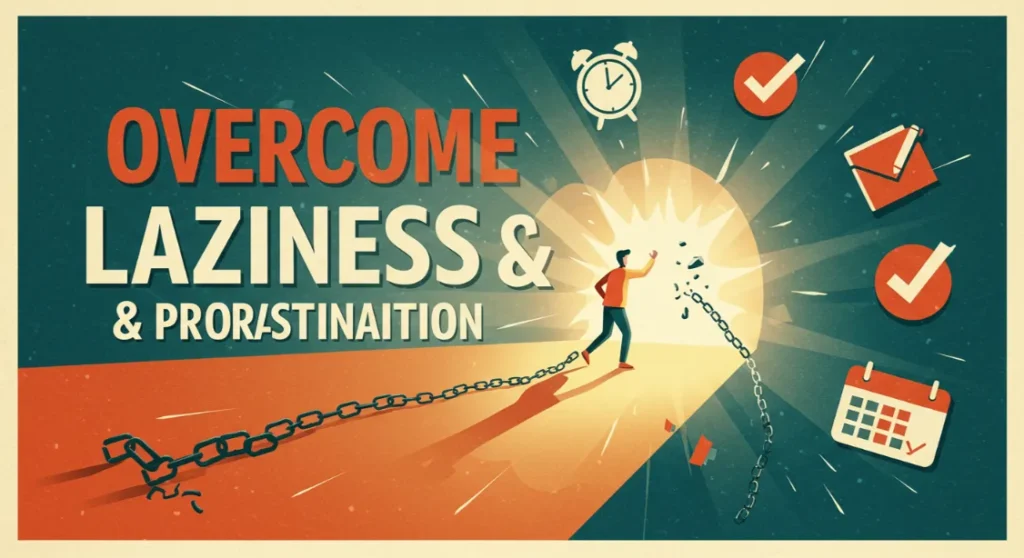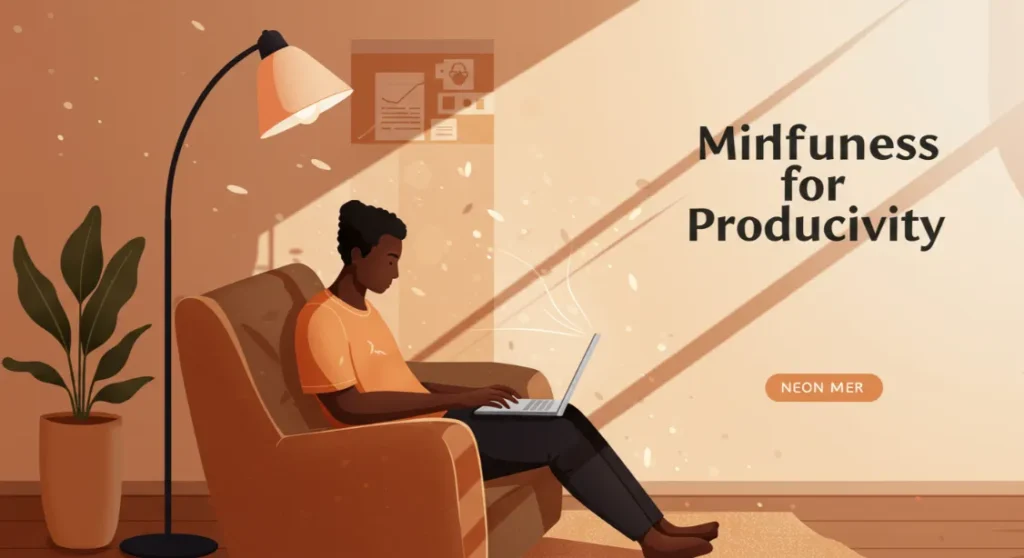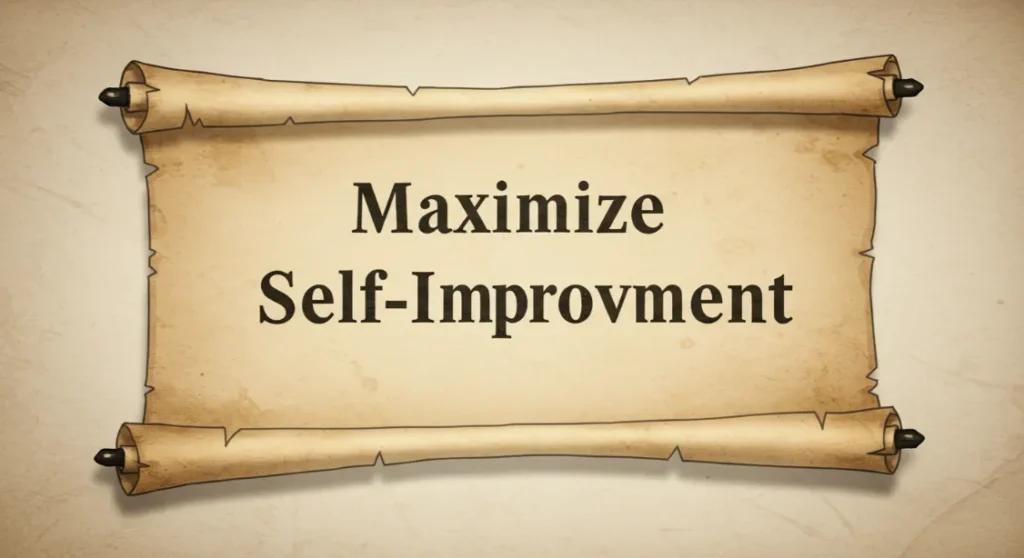Ever notice how a single night of poor sleep can turn your sharp mind into a foggy mess? You’re not alone. Research shows that even losing one hour of needed sleep can slash your cognitive performance by up to 32%. That’s like trying to work with one-third of your brain tied behind your back!
Sleep isn’t just about feeling rested—it’s the foundation of your productivity, decision-making, and overall success. Let’s explore how proper sleep hygiene can transform your performance and help you achieve your goals.
Key Takeaways
- Quality sleep directly enhances focus, memory, and problem-solving abilities
- Consistent sleep schedules regulate your body’s internal clock for optimal performance
- Your sleep environment significantly impacts sleep quality and duration
- Digital devices before bedtime disrupt natural sleep hormones and delay sleep onset
- Physical activity improves sleep quality when timed properly during the day
- Nutrition and hydration choices affect how quickly you fall asleep and sleep quality
The Science Behind Sleep and Productivity

Your brain doesn’t shut down when you sleep—it kicks into a different mode entirely. During sleep, especially deep sleep stages, your brain processes information, consolidates memories, and clears out mental debris. Think of it as your brain’s maintenance crew working the night shift.
When you consistently shortchange your sleep, this maintenance doesn’t get completed. The result? Impaired focus, reduced creativity, and poorer decision-making—all enemies of productivity.
Studies show that sleep-deprived individuals take longer to complete tasks and make more errors. Even mild sleep deprivation can impair your cognitive function similar to being legally intoxicated. No wonder your productivity tanks after a poor night’s sleep!
How Sleep Affects Your Brain Function
Sleep quality directly impacts several brain functions essential for productivity:
Memory Consolidation
During deep sleep, your brain transfers information from short-term to long-term memory. This process is crucial for learning and retaining new skills. Skip this vital sleep stage, and you might as well be pouring information into a leaky bucket.
Decision-Making Ability

A well-rested brain makes better decisions. Sleep deprivation impairs your prefrontal cortex—the brain region responsible for complex thinking and decision-making. This explains why you might make impulsive choices or struggle with prioritizing tasks when tired.
Emotional Regulation
Sleep and emotional stability go hand-in-hand. Poor sleep amplifies your amygdala’s response to negative stimuli, making you more reactive to stress. This emotional dysregulation can derail your focus on one task and sabotage your productivity.
Creative Problem-Solving
Ever notice how solutions sometimes appear after a good night’s sleep? That’s because sleep enhances creative thinking and problem-solving. Your brain makes new connections during REM sleep, often leading to those “aha!” moments that boost your productivity.
Creating Your Sleep Hygiene Routine

Establishing good sleep hygiene isn’t complicated, but it requires consistency. Here’s how to build habits that support restorative sleep:
Consistent Sleep Schedule
Going to bed and waking up at the same times—even on weekends—helps regulate your body’s internal clock. This consistency reinforces your natural sleep-wake cycle, making it easier to fall asleep and wake up refreshed.
Try setting a bedtime alarm to remind you when to start winding down. This simple habit can help you take control of your day by ensuring you get adequate sleep.
Optimize Your Sleep Environment

Your bedroom should be a sleep sanctuary:
Temperature: Keep your bedroom cool (around 65-68°F/18-20°C)
Light: Make your room as dark as possible with blackout curtains
Noise: Use earplugs or white noise machines to block disruptive sounds
Comfort: Invest in a quality mattress and pillows that support your sleep posture
These environmental factors can significantly impact how quickly you fall asleep and your sleep quality throughout the night.
Digital Detox Before Bed
The blue light emitted by phones, tablets, and computers suppresses melatonin production, making it harder to fall asleep. Establish a digital curfew at least 30-60 minutes before bedtime.
Instead of scrolling through social media, try reading a physical book, practicing mindfulness and present moment awareness, or journaling to wind down. These activities signal to your brain that it’s time to relax.
Physical Activity and Sleep Quality
Regular exercise is one of the most effective ways to improve sleep quality. Physical activity helps you fall asleep faster and enjoy deeper sleep cycles. However, timing matters:
Morning/Afternoon Exercise: Ideal for most people, as it raises body temperature and then allows it to drop by bedtime, promoting sleepiness
Evening Exercise: Light activities like yoga or stretching can be relaxing before bed
Late-Night Intense Workouts: Best avoided as they can be too stimulating
Finding the right exercise and productivity balance is key to enhancing both your sleep quality and daytime performance.
Nutrition, Hydration, and Sleep
What you eat and drink affects your sleep more than you might realize:
Food Choices
Certain foods can help or hinder sleep:
Sleep Promoters: Tryptophan-rich foods (turkey, eggs, cheese), complex carbs, magnesium-rich foods (nuts, seeds)
Sleep Disruptors: Spicy foods, high-fat meals, excessive sugar
A light snack before bed can prevent hunger from waking you, but heavy meals can cause discomfort and disrupt sleep.
Caffeine and Alcohol
Both caffeine and alcohol can significantly impact sleep quality:
Caffeine: Can stay in your system for 6+ hours, so avoid it after mid-afternoon
Alcohol: May help you fall asleep initially but disrupts REM sleep and causes fragmented sleep later in the night
Being mindful of these substances is crucial for maintaining good sleep hygiene.
Hydration Balance
Staying hydrated is important, but timing matters:
Drink plenty of water throughout the day
Reduce fluid intake 1-2 hours before bed to minimize nighttime bathroom trips
Stress Management for Better Sleep

Stress and sleep have a bidirectional relationship—stress disrupts sleep, and poor sleep increases stress. Breaking this cycle is essential for productivity.
Incorporating mindfulness for productivity practices before bed can calm your mind and prepare your body for sleep. Try these techniques:
Progressive muscle relaxation: Tense and release each muscle group
Deep breathing: Practice 4-7-8 breathing (inhale for 4, hold for 7, exhale for 8)
Meditation: Even 5-10 minutes can reduce bedtime anxiety
Journaling: Write down worries to get them out of your head
These practices can help you manage work stress and prepare your mind for restorative sleep.
When Sleep Problems Persist
If you’ve implemented good sleep hygiene practices but still struggle with sleep, it might be time to investigate further:
Common Sleep Disorders
Several conditions can disrupt sleep despite good habits:
Insomnia: Difficulty falling or staying asleep
Sleep apnea: Breathing interruptions during sleep
Restless leg syndrome: Uncomfortable sensations causing an urge to move the legs
Circadian rhythm disorders: Misalignment of your internal clock with environmental cues
When to Seek Professional Help

Consider consulting a healthcare provider if you experience:
Persistent difficulty falling or staying asleep
Excessive daytime sleepiness despite adequate sleep time
Loud snoring, gasping, or stopping breathing during sleep
Persistent morning headaches
Sleep problems that interfere with daily functioning
Addressing underlying sleep disorders can dramatically improve your productivity and help you be unstoppable in pursuing your goals.
Sleep Tracking and Optimization
Technology can help you understand and improve your sleep patterns:
Sleep Tracking Tools
Various devices and apps can monitor your sleep:
Wearable devices: Track sleep duration and stages
Bedside monitors: Measure environmental factors and sleep patterns
Smartphone apps: Analyze sleep quality through movement and sound
While not perfect, these tools can provide insights into your sleep patterns and help you identify areas for improvement.
Using Sleep Data Effectively
Don’t just collect data—use it to improve your sleep:
Look for patterns in your best and worst nights of sleep
Experiment with different bedtime routines and track results
Adjust your sleep environment based on your findings
This data-driven approach can help you stay on track with goals related to sleep improvement.
The Sleep-Productivity Connection
The relationship between sleep and productivity is undeniable. Quality sleep enhances focus, creativity, and decision-making—all critical components of productivity.
When you prioritize sleep, you’re not just investing in feeling good; you’re investing in your performance and success. As research consistently shows, well-rested individuals accomplish more in less time and with fewer errors than their sleep-deprived counterparts.
By implementing the sleep hygiene practices outlined in this guide, you can transform your nights and revolutionize your days. Remember that small, consistent improvements in sleep habits can yield significant gains in productivity and overall well-being.
Make quality sleep a non-negotiable part of your productivity strategy, and watch as your focus sharpens, your creativity flourishes, and your ability to get more done in less time reaches new heights.
Sleep Hygiene Checklist
Use this checklist to evaluate and improve your sleep hygiene:
Maintain a consistent sleep schedule, even on weekends
Create a relaxing bedtime routine
Optimize your sleep environment (dark, cool, quiet, comfortable)
Limit screen time before bed
Avoid caffeine after mid-afternoon
Exercise regularly, but not too close to bedtime
Manage stress through relaxation techniques
Avoid heavy meals before bed
Limit daytime naps to 20-30 minutes
Expose yourself to natural light during the day
By addressing these key areas, you’ll be well on your way to mastering mental clarity and enhancing your productivity through better sleep.
Remember, sleep isn’t a luxury—it’s a biological necessity and the foundation of peak performance. Prioritize your sleep, and you’ll be amazed at how much more you can accomplish when fully rested and recharged.
Resources:
- National Sleep Foundation: Sleep Hygiene Tips
- Harvard Health Publishing: Twelve Simple Tips to Improve Your Sleep
- Sleep.org: What is Sleep Hygiene?
- CDC: Tips for Better Sleep
- American Academy of Sleep Medicine: Healthy Sleep Habits
- Mayo Clinic: Sleep tips: 6 steps to better sleep